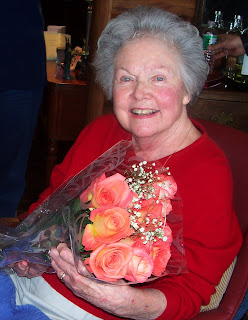
Good teachers humble me and I love schools. Every once and a while, I think about going back to school to get a degree in education. Why haven't I followed through yet? Whenever I spend time just visiting a classroom, I go home and take a nap. I'm exhausted. I don't know how teachers do it.
Luckily there are other brave and passionate souls out there preparing to make teaching their career. Recently, I was interviewed by education major Nicholas Macula, a second year student at St. John's University on Staten Island for a group project on bullying. The presentations were an assignment given by professor Dr. Sandra Abrams for a required education course titled Human Relations in Inclusive Settings. That's an unusual course title so I had to ask Dr. Abrams what it meant:
Students in the School of Education at St. John’s University are required to enroll in Human Relations in Inclusive Settings in order to become well equipped with interpersonal communication and self-reflective tools that will enhance their teaching and learning experiences. As noted in the academic bulletin, this course involves collaborative and individual projects that help students not only understand the importance of parent and community involvement, but also develop an “appreciation of the values and cultures of English language learners.” The work students complete for this class helps them acquire strategies for improved communication and classroom practice, preparing students for dynamic, real-world scenarios.
When asked if I could write about this, St. John's graciously said yes under the condition that I include the following statement:
“The views expressed on the pages of this blog/web site DO NOT reflect, in any way, the opinions of St. John’s University, its administrators, faculty and staff.”
That being said, I do have to add that St. John's should be very proud of what I saw and heard -- a professor inspiring her students to think and students who were doing just that.
They shared great information regarding the definition of bullying, cyber bullying and exploring solutions but for this post, I’d like to share a few outstanding points that may be of interest to parents, especially since parent/school relationships are key.
• First and foremost, it's important for parents to know that these types of courses exist for teachers in training. Whether dealing with bullying issues is part of the exact job description of a teacher or not, it can be a part of the classroom experience. Being aware of it makes a teacher more prepared.
• Above and beyond academics, the role of the teacher can be very challenging.
As part of the assignment, one of the groups conducted an informal survey on campus and online. Only 14% of students surveyed who responded yes when asked if they had been bullied in primary and/or secondary school, told a teacher.
This is a statistic that now holds much more significance for the St. John's students as they prepare to be that teacher, especially given that most advice we give children is to "tell a trusted adult, such as a teacher or parent."
When Dr. Abrams asked her students why they thought 86% of those surveyed did not confide in a teacher, the general consensus was, based on their own recent memories of being in school, they didn't feel the teacher would do anything about it or the teacher's involvement may even cause more problems.
Aha! That's why courses like Human Relations in Inclusive Settings are so necessary. Within a few years, most of the St. John's students will hopefully have jobs in elementary, middle or high schools, but they're not waiting until then to start thinking about the teacher's role.
Dana, a senior who has already had some classroom teaching experience, suggested that there should be required workshops that include both teachers and counselors that discuss bullying specifically, just as there are other professional development workshops.
One thing became clear to me. Teachers are trained to teach and not to be social workers. But I love Dana's suggestion because in order to help teachers teach, we have to support them in handling difficult situations that impact the success of individual students and the class as a whole. Teachers need to feel prepared, even if it means learning what not to say or when to work with a counselor. Counselors are often not prepared themselves.
How do we help fix that disconnect? Putting teachers AND counselors in a room together and giving them both the same information and letting them share their knowledge sounds good to me. This will help build an infrastructure in the school to help pave the way for real help for kids who need it.
I'd like to thank Dr. Abrams and her students for caring. The future students of these future teachers will thank them, too.
















